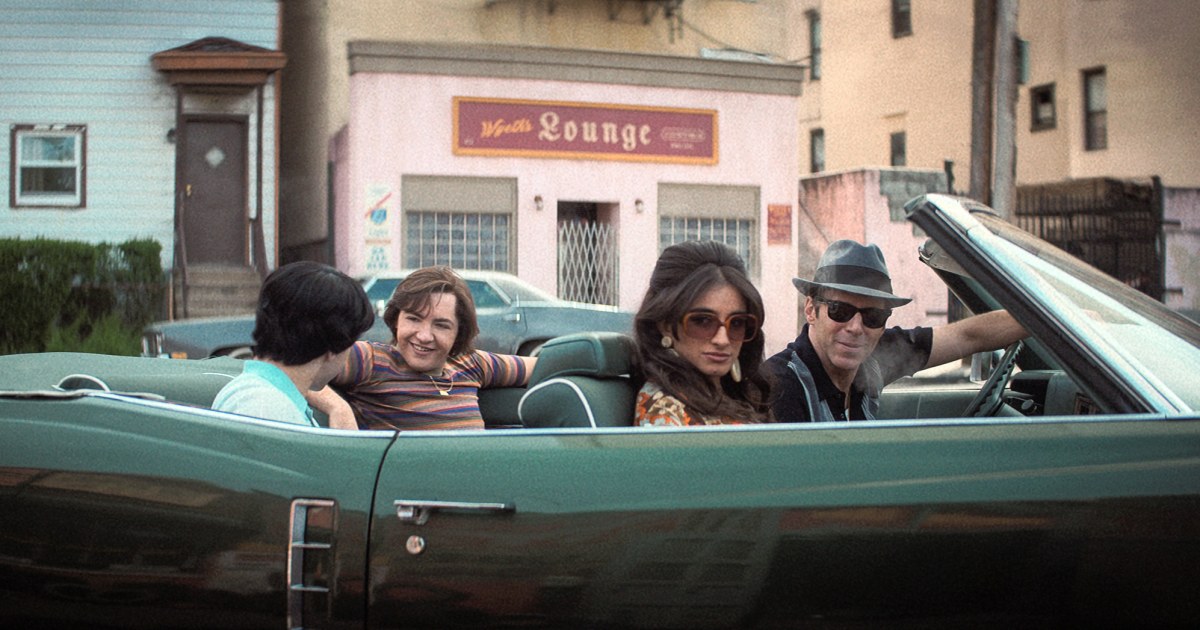
It’s an offer millions of “Sopranos” fans can’t refuse: a prequel exploring the early days of Tony Soprano. On Friday, that movie, “The Many Saints of Newark,” opens in U.S. theaters and is being released on HBO Max.
The better the quality, the more deeply this image of Italian life and culture sinks into the American psyche.
The wildly successful TV series on which the prequel is based ran from 1999 until 2007, ending with an enigmatic finale that frustrated millions of viewers. Many hoped that series creator David Chase would continue the saga, perhaps on the big screen. James Gandolfini, who made Tony Soprano memorable, died in 2013. But his son, Michael, was just the right age to portray a young Tony for the prequel.
Whatever the merits of the prequel, the last thing many of us Italians need is a new generation of viewers who perceive our experience through the lens of violent mobsters, even ones with complex personalities.
Chase said his original goal for “The Sopranos” was to “make a really great gangster movie,” and that continues to be his aim for the prequel. The movie, set in 1967 during the Newark riots, adds the element of racism to the mafiosos’ many sins.
But mining a mob family for drama and social commentary is going after low-hanging fruit. It’s a story that will offer opportunities for violence, strip clubs and the inevitable tension between the old and new generations as the heirs of mob bosses must choose between legitimate upward mobility or staying faithful to the family business. The metaphors about chasing the American Dream and the moral dilemmas that quest presents practically write themselves.
It would have been nice if Chase had aimed higher. The Italian American experience is richer and more varied than the sagas of mob families. It’s about people like my grandparents, complicated men and women who made enormous sacrifices to give their families better lives without breaking a single law.
I didn’t watch the series when it first aired because my husband and I didn’t have HBO then. However, over the past few months I’ve taken in a good sample of key episodes, and “The Sopranos” seems to deserve every award it received and the huge audience it attracted. But the better the quality, the more deeply this image of Italian life and culture sinks into the American psyche.
How deeply? Let me offer a personal example. I loved my Jewish husband’s parents, and they loved me. But Evelyn, my late mother-in-law, had one annoying habit: Every time we visited, she’d make a Mafia reference. When I eventually mentioned this to my spouse, he asked her about it. She told him that she hadn’t realized how many times she’d brought up the mob in my presence, and was puzzled by her behavior. A devotee of Freud, she remarked, “I wonder why I do this.” (She never mentioned the Mafia again.)
She may have found an answer in some psychoanalytic theory, but to me it was clear: The link between Italian Americans and the mob was hard to break, reinforced by years of popular culture. This certainly didn’t start with “The Sopranos,” but the series took it to a whole new level.
Chase, himself an Italian American, reportedly has said that as an artist, he can’t be concerned with the self-esteem of people like me. But people like me have every right to say “basta” to these ceaseless depictions of Italian Americans as criminals.
I’m not alone in my frustration. In 2001, then-Rep. Marge Roukema, R-N.J., also an Italian-American, started hearing complaints from her constituents about “The Sopranos.” She sponsored a congressional resolution criticizing the series and citing statistics that demonstrated how much the Mafia had dominated portrayals of Italian Americans in popular culture. One salient fact: In the years between the release of “The Godfather” in 1972 and 2000, more than 300 mob films featuring Italian gangsters had been made.
The Roukema resolution cited Department of Justice estimates that only about 5,000 individuals were then involved in organized crime in the U.S. If you assumed they all were Italian — which never was the case — that would have constituted well under 1 percent of the country’s roughly 20 million Italian Americans.
The resolution didn’t gain any traction in Congress. But it did take off among headline writers who couldn’t resist using mob references, undercutting the seriousness of Roukema’s point. Even the staid New York Times ran the headline “Congresswoman takes a whack at ‘The Sopranos’ stereotype.”
The damage of this unfair stereotype to Italian Americans is most acute in politics. Take Mario Cuomo, elected in 1982 as New York’s first Italian-American governor. (He’s also the father of Andrew Cuomo, himself a New York governor until a sexual harassment scandal forced him out of office this year, and of CNN anchor Chris Cuomo).
The elder Cuomo, capable of soaring rhetoric, was considered presidential material. But for years he was dogged by unfounded rumors of mob connections. Media scrutiny was relentless. It took an exhaustive investigation in 1987 by New York Magazine journalist Nicholas Pileggi to put them to rest.
But by then it was too late. The rumors and questions had lingered too long. Cuomo didn’t ever publicly reveal the reasons he never sought the ultimate political prize. But many political insiders felt that he wanted to spare himself and his family all the malicious gossip a national campaign would provoke, and the unfair political ads that would taint their name.
For all the success and acceptance that Italian Americans have achieved, imagine if a certain businessman candidate called Donald Troppo had thrown his hat into the ring for president in 2015. Wouldn’t his background in casinos and construction have raised a lot more questions than they did when a candidate named Donald Trump launched a campaign? Even though the media reported on Trump’s ties to organized crime, they never really became a political problem with voters. Trump’s name didn’t end with a vowel, so why worry?
And that’s what is so troubling about “The Sopranos” and its continuing hold on the American imagination. If the Italian American story is reduced to the sagas of mob families, we’ll never fully escape that suspicion — usually unvoiced, maybe even subconscious — that subtly shapes the way we are perceived.
Source: | This article originally belongs to Nbcnews.com










